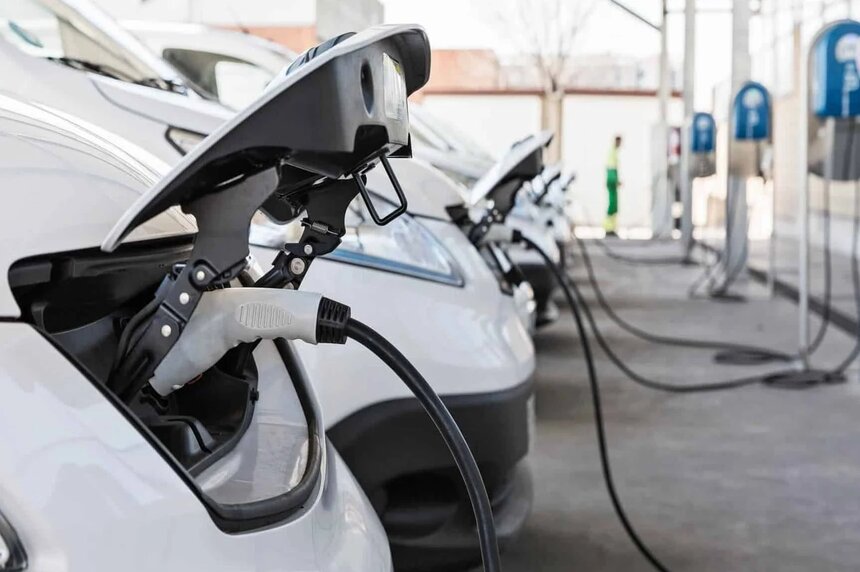13
February
Factors to Consider When Choosing EV Charging Solutions for Fleet Management
In today's fast-paced business world, fleet management plays a significant role in ensuring efficient operations and cost savings for companies. With the growing popularity of electric vehicles (EVs), it is essential for fleet managers to carefully consider the right EV charging solutions to meet their needs.
The advantages of integrating EVs into fleets, such as lowering fuel expenses and reducing carbon emissions, are indisputable. Nonetheless, selecting the appropriate charging infrastructure can be a challenging endeavor. That’s where this article comes in.
The Importance of EV Charging Solutions for Fleet Management
Effective fleet management is significant for businesses to retain a competitive edge. As more companies transition to electric vehicles, it becomes imperative to have a robust and reliable charging infrastructure in place. EV charging solutions are the backbone of any successful electric fleet operation, providing the necessary power to keep vehicles on the road and minimize downtime. By investing in the right charging solutions, fleet managers can unlock the full potential of their electric fleets and reap the rewards of reduced operational costs and environmental sustainability.
Factors to Consider When Choosing EV Charging Solutions
Analyzing your fleet's needs and specifications
Before diving into EV charging solutions, it is essential to comprehend the distinct needs and specifications of the fleet. You can consider factors such as the size of your fleet, daily mileage, and charging patterns.
Are your drivers constantly on the road, or do they return to a central depot at the end of the day? Understanding these usage patterns will help determine the type and number of charging stations required and the appropriate charging speeds.
Understanding the different types of EV charging solutions
EV charging solutions come in various forms, offering diverse charging speeds & capabilities. Familiarize yourself with the diverse range of charging solutions available in the transportation and logistics market.
Level 1 charging, which utilizes a standard household outlet, is the slowest but can be suitable for overnight charging. Level 2 charging provides faster charging speeds and is commonly used in residential and commercial settings. Level 3 charging, also known as DC fast charging, offers the quickest charging times but requires specialized equipment and infrastructure.
Evaluating charging speed and capacity
The charging speed and capacity of EV charging solutions are crucial considerations for fleet managers. Faster charging speeds can significantly reduce vehicle downtime and increase fleet productivity. However, it's essential to strike the right balance between charging speed and cost. High-speed charging solutions can be more expensive to install and may require additional electrical infrastructure. Assessing your fleet's daily mileage and charging patterns will help determine the optimal charging speed and capacity required.
Considering scalability and future-proofing
As your fleet expands and develops, selecting EV charging solutions capable of scaling with your needs is crucial. Scalability ensures seamless expansion of your charging infrastructure without requiring significant modifications or additional investments. Future-proofing is equally important as technology and charging standards evolve. Investing in charging solutions compatible with emerging technologies and industry standards will prevent costly upgrades in the future.
Assessing the ease of installation and maintenance
Choosing EV charging solutions that are easy to install and maintain can save you time, money, and headaches. Consider factors such as installation requirements, compatibility with existing electrical infrastructure, and the availability of support and maintenance services. Opting for solutions that offer plug-and-play installation and remote monitoring capabilities can streamline the deployment and management of your charging infrastructure.
Exploring Smart charging capabilities and features
The Smart charging solutions offer a range of advanced features that can enhance the efficiency and reliability of your charging operations. These features include load management, which optimizes charging schedules to avoid overloading the electrical grid, and dynamic pricing, which allows for cost optimization based on electricity tariffs. In addition, the Smart charging solutions can integrate with fleet management software, providing real-time data on charging sessions, energy consumption, and vehicle status.
Comparing pricing and return on investment
Cost is a significant factor when choosing EV charging solutions for fleet management. It is essential to compare the upfront expenses of purchasing and installing charging stations and any ongoing maintenance and electricity costs. In addition, assessing potential return on investment (ROI) and long-term savings from transitioning to electric vehicles is essential. Considerations such as reduced fuel expenses, decreased maintenance outlays, and available incentives should all factor into determining the cost-effectiveness of EV charging solutions.
Conclusion
Choosing the right EV charging solutions for fleet management is a critical decision that can significantly impact the success of your electric fleet operation. By carefully considering factors such as fleet requirements, charging speed and capacity, scalability, ease of installation and maintenance, Smart charging capabilities, and pricing, fleet managers can make informed decisions that optimize their charging operations and maximize productivity. With the right charging infrastructure in place, businesses can enjoy the benefits of reduced operational costs, environmental sustainability, and a competitive edge in the evolving landscape of fleet management.


Comments